Pioneer Stories

Marge Hickman
Marge Hickman can’t sit still. If she’s not running, she’s hiking, driving around the country in her RV, or engaging in another form of movement. Since she was a kid, the ultra running phenom has always felt an insatiable drive to prove herself. And that drive has taken her places few in the running community have dared to go. In 1989, Hickman completed the grand slam of ultra running, meaning she finished four of the oldest 100-mile races in a span of 10 weeks. She is one of only 59 women who have accomplished the feat since it was established in 1986. She also completed the Leadville Trail 100 a total of 14 times (within the time limit), the most by any woman at the event. Now, at almost 75 years old, Hickman still competes regularly as an enduring pioneer in the sport.

Jen Kanyugi
This month, we’re bringing you something a little bit different in this feed: an episode of Women’s Running Stories, a podcast hosted by Cherie Louise Turner. This episode features Jen Kanyugi, who last year ran her 20th consecutive Boston Marathon. And yes, after this was recorded, she did indeed finish the race! Jen's journey to get to this point is about this one event, and so much more. In this time, Jen went from not running more than 20 minutes on the treadmill to being a steady presence at this, one of the most recognized and celebrated running events in the world. She’s also learned the power of support, finding groups to train with and create community with, like Girls on the Run and Black Girls Run.

Henley Gabeau
In the mid-1970s, Henley Gabeau didn’t set out to become an accomplished distance runner. Instead, her athletic journey started as a simple desire to keep up with her 12-year-old daughter while training on the track. Henley quickly noticed there weren’t many spaces dedicated to women, so she and a group of like-minded athletes formed RunHERS, one of the first women’s running clubs in the United States. She went on to become the first female president of the Road Runners Club of America and then the organization's first-ever executive director; she also played a role in advocating for adding the women's marathon to the Olympics. Henley's contributions to the world of distance running go beyond her athletic achievements; her work as an advocate, race director, mother and leader helped shape women’s running into what it is today. Henley passed away in 2018—this interview was conducted by Olympian Amy Begley in 2013.

Dr. Joan Ullyot
Dr. Joan Ullyot, the “fastest physician marathon runner," paved the way for women runners across the world, proving by example that women should not be counted out when it comes to long distances. Ullyot raced in 80 marathons, winning ten of those along with the masters division in the Boston Marathon in 1984. Her book “Women’s Running,” published in 1976, and her in-depth studies as an exercise physiologist made the case that women deserve the equal opportunity to run competitively; her efforts were instrumental in lobbying the International Olympic Commission to add the women's marathon to the Olympics in 1984. Dr. Ullyot passed away in 2021, at age 80; this interview was conducted in 2013 by Amy Begley.
Read More

Sara Mae Berman
In 1969, 32-year-old Sara Mae Berman was the first woman to cross the finish line in the Boston Marathon. She did it again in 1970 and 1971. But women weren’t allowed to enter officially, so her times—3:22:46, 3:05:08, and 3:08:30, respectively—were unofficial. "All we ever wanted, us early women, was to be allowed to run the distance, and we weren't in any bloodthirsty competition with each other. We just wanted to be able to run the distance and improve our times," she says.

Native Women Run: Verna Volker,Jessica Louis, Amber Henderson, Angel Tadytin, and Birdie Wermy
Native people, including women, have been running over these lands since long before anyone organized a major marathon. Yet all too often, with notable exceptions like past guest Patti Catalano Dillon, they aren’t represented at modern races. Changing that is the key goal of Native Women Run, an organization that Verna Volker launched in 2018. At first, it was an Instagram page; now, it’s a non-profit that creates space for and elevates the stories of Native women who run. This year, NWR brought four runners to the Bank of America Chicago Marathon: Jessica Louis, Amber Henderson, Angel Tadytin, and Birdie Wermy. All of them joined Verna, Starting Line 1928’s Cindy Kuzma, and Cherie Louise Turner of Women’s Running Stories for a special live podcast recording at the expo the day before the race.

Junko Kazukawa
Junko Kazukawa is a Japanese born women's ultra running pioneer best known for having finished the Leadville 100-mile race 10 times. Junko is a two-time breast cancer survivor with more than three decades of experience in health, fitness and training. She currently works as an ultra endurance coach with Boundless.
Junko lives and trains in Denver, Colorado, and has completed 24 100-mile trail races so far, including Leadville, UTMB, Mt. Fuji, Ultra Fiord in Patagonia. She's the first female to finish the Grand Slam of ultra running in 2015. She was Lead Woman three times, in 2014, 2015 and 2024. This means she completed all six events in the Leadville Race Series in the span of two months in the nation’s highest city, including a trail marathon, a mountain-bike race, the Leadville Trail 100 Run, and more.
She was the 2015 Sports Woman of Colorado and voted as the Colorado resident badass in 2017.
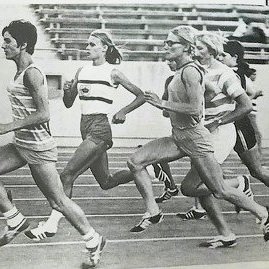
Doris Brown Heritage
Doris Brown Heritage has always had a need to run. During a career that spanned roughly twenty years, Brown Heritage held every woman’s national and world record from the 440 yards to the marathon. In 1966 she became the first woman to run an indoor sub-five-minute mile in 4:52. Ten years later, on a lark with little training, she won her first marathon, the 1976 Vancouver International Marathon in 2:47:35 at the age of 34.
She is a two-time Olympian (1968, 800m, 1972 1500m) and is a living legend in her home state where she was named Seattle’s 1971 Man of the Year in Sports. She found that hilarious. Her most acclaimed accomplishment was winning five consecutive International World Cross-Country Championships from 1967 through 1971. “She is a remarkable woman who should have the name recognition of Jim Ryan,” claims Charlotte Lettis Richardson who included Brown Heritage in her documentary Run Like a Girl.

Laurel James
“Life is a challenge. And if you can’t enjoy that, you’re in trouble.” Laurel James, founder of the Seattle-based running retailer Super Jock ‘n Jill and mastermind behind the 1984 U.S. Women’s Olympic Marathon Trials race, does not mince words. James entered the nascent running-retail scene in 1975, and quickly cemented herself as a visionary female entrepreneur, race director, and community pillar in the running world and beyond.

Sue Parks
Sue Parks has had a storied career as an athlete and coach who continues to break barriers in the NCAA. Today, Sue is the director of cross-country and track and field at her alma mater, Eastern Michigan University. She’s one of the few women leading a track and field program at the Division 1 level. Years before she became a director, Parks was blazing her own path as one of the first women track stars in her home state. Her most memorable race was against Olympic gold medalist Madeline Manning (now Mims) in the Los Angeles Coliseum, where Parks ran her personal best in the 800 meters at the age of 16. She also competed on the U.S. team in the Pan American Games.

Patti Catalano Dillon
In 1980, Patti Catalano (now Patti Catalano Dillon) became the first American woman to break 2:30 in the marathon. She has held American and world records at various distances—including the 5 mile, 10 mile, 10k, 15k, 20k, 30k and half marathon, and she has been inducted into the RRCA Distance Running Hall of Fame. She won the Honolulu Marathon four times and finished second at the Boston Marathon three times, in 1979, 1980 and 1981.

Janet Romayko
Janet Romayko is a veteran of 49 marathons and countless triathlons including the half Ironman distance. But what she is most thrilled with is her 50 consecutive finishes at the Manchester Road Race in Manchester CT, a 4.748-mile race held on Thanksgiving Day started in 1927. She loves running Manchester. “It’s very special to me. My family grew up there, are buried there. It’s a very sweet feeling I have for the town and the community. It’s truly coming home for me. It’s a wonderful experience,” states Romayko, who now lives in Hartford and still works as a clinical social worker.
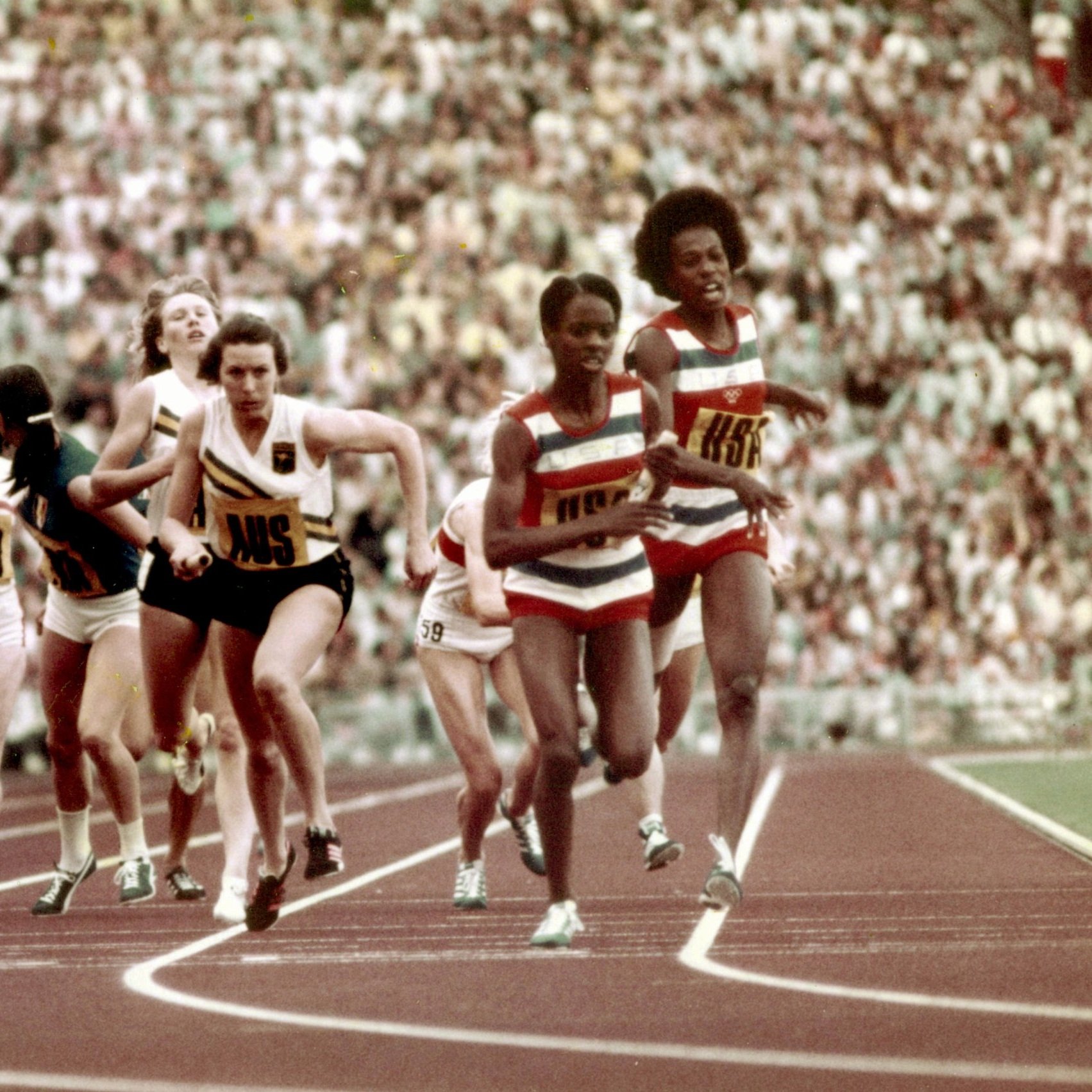
Cheryl Toussaint
Cheryl Toussaint is the meet director of the Colgate Women’s Games and an Olympic silver medalist She grew up in Bedford-Stuyvesant, Brooklyn, and began running with the Atoms Track Club at age 13. There, Coach Fred Thompson nurtured her athletic talent—and encouraged her academically. Cheryl earned an academic scholarship to New York University and kept training with the Atoms, eventually making the Olympics in 1972; she competed in Munich in the 800 meters and 4x400 relay, where she helped the team make the final—and eventually, win silver—despite losing a shoe. She also began assisting Thompson with his other venture, the Colgate Women’s Games, and took over as meet director when he retired in 2014. It’s the largest amateur track & field series in the United States, open to all young women from elementary school through college and beyond, and has launched the careers of many other Olympians and successful women in other fields.

Francie Larrieu Smith
Francie Larrieu Smith was the youngest woman 1500-meter runner and the oldest woman in any track and field event the U.S. ever sent to the Olympics. Her running career spans five Olympics and multiple distances. Her best Olympic finish was fifth place in the 10,000-meter event at the 1988 Seoul Olympics, the first running of the event. She was the flag bearer for the U. S. Olympic Team at the 1992 Barcelona Olympics. During her 30-year athletic career, she established 36 United States records and 12 world bests in distances ranging from 1000 meters to 10,000 meters.
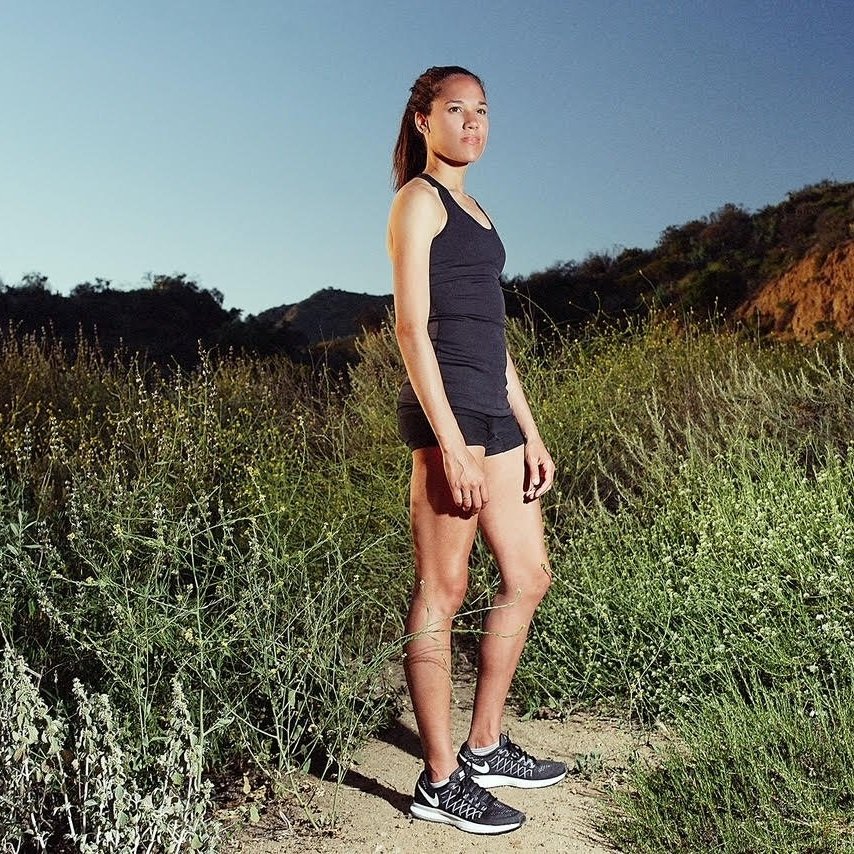
Krystine Beneke
Krystine Beneke started her athletic career at a very young age, dancing for the Houston Ballet Academy in Houston. Simultaneously, she began running with her father through their neighborhood. Krystine began competing in middle-school and high-school track events. After college, she began a career in banking—and started to focus on longer-distance races, starting with a New York Road Runners 15K that she ran with a friend. She found she had a natural ability as a runner, and completed 15 full marathons and 26 half-marathons, all while building a start-up digital IP acquisition company. Eventually, Krystine went on to qualify for and run the Boston Marathon in 2014, with a PR time of 2:59:47. Although Krystine has put running for competition aside for the moment, she has found joy and success in other pursuits, such as painting.
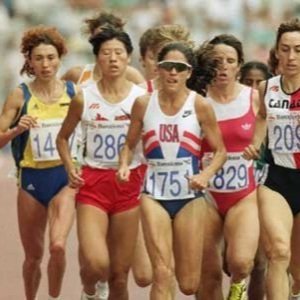
PattiSue Plumer (part 2)
PattiSue was a two-time NCAA champion and nine-time All American at Stanford. She went on to win four U.S. national titles and make two Olympic teams, placing 13th in the 3K at the 1988 Seoul Olympics and fifth in the 3K and 10th in the 1500 at the 1992 Barcelona Olympics. She was also the first American woman to break 15 minutes in the 5k, setting the national record of 14:59 in 1989. PattiSue started coaching on the side during her professional running career, and went on to assistant coaching stints at her alma mater, Stanford, as well as the University of Texas, where she remained until this past summer.

Janet Cain
Janet Cain is a former USA Track & Field National Marathon Champion in both the 55-59 and 60-64 age group. She set a Napa Valley Marathon record for that latter age group in 2014, finishing the race in 3:43:39. Her life has been a series of exciting wins and heartbreaking losses. Now 72 and living in Sonoma, CA, where she has a clinical psychology practice, Cain is still running strong and posting faster times now that she is working with a coach for the first time in her running career. The biggest change has been adapting to running in the visually impaired division.

Lou Peyton
Lou Peyton was one of the first women to complete the Grand Slam of ultrarunning, completing four 100-mile races in the summer of 1989. And in fact, she went on to complete a fifth 100-miler that same year. Peyton started running just a few weeks after her first child was born in 1968. She's also the co-founder, with her husband, of the Arkansas Traveler, a 100 mile race that's still going on today.
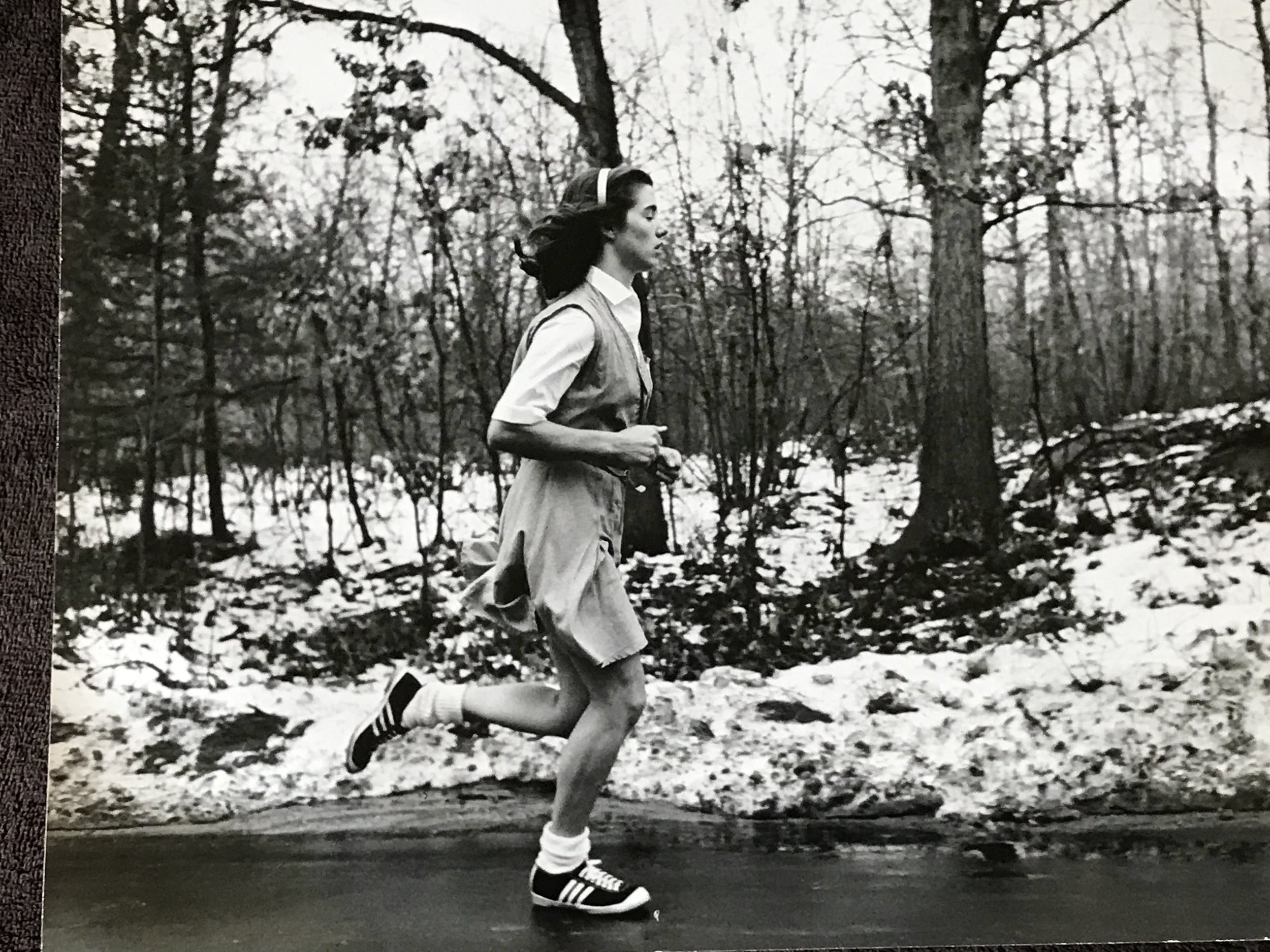
Julia Chase-Brand
On Thanksgiving Day 1961, at 19 years old, Julia Chase-Brand turned heads when she defied the orders of the Amateur Athletic Union and entered and completed the historic Manchester Road Race. Her participation in the widely followed event opened the door for women’s cross-country later that spring and in turn a great number of other changes allowing women to run distance events. Julia faced discrimination from both men and women. Among many things, she was told she’d risk her fertility and ruin her beauty if she ran distance events. But Julia pressed on. She competed in distance running at the elite level for six years and then went on to challenge academic gender norms by pursuing a graduate degree in science where she studied bats and orangutans. Twenty years later, she challenged age norms by completing a medical degree in psychiatry at the age of 53.

Ingrid Walters
Running was not Ingrid Walters’ first love. Nor was it her second, or her third. She didn’t run in earnest until she turned 41, at which point she immediately began (quite literally) making up for lost time. After swimming competitively through the first two years of college, she began lifeguarding, and picked up beach running to stay in shape. She enjoyed it enough to accept a college classmate’s “dare” to run the 1993 Los Angeles Marathon, which she completed in 4:03:00. After that, she effectively spent two decades away from the sport. At age 33 she ran the LA Marathon again, this time in 3:37 – almost exactly one minute per mile faster than her first attempt. Then, six years later, she pursued marathoning in earnest, running 3:17 at age 39, then 3:07 at age 40. She first broke three hours at the 2014 Chicago Marathon with a 2:54:58, good for third place in the Masters Division and a spot on “The List” of American-born Black female runners who have run a sub-three-hour marathon. Her marathon progression culminated when she, at age 47, won the women’s Open division at the 2019 Los Angeles Marathon with a time of 2:48:03. Afterward, medical issues temporarily sidelined her—but as she explains, she might not be done with the sport yet. Walters is also an actress who's appeared in the film “Amistad,” and she has appeared in shows including “Baywatch,” “Scandal,” “Grey’s Anatomy,” “Shameless,” and “Parenthood,” as well as on stage at the Geffen Playhouse and in over 50 national commercials.

